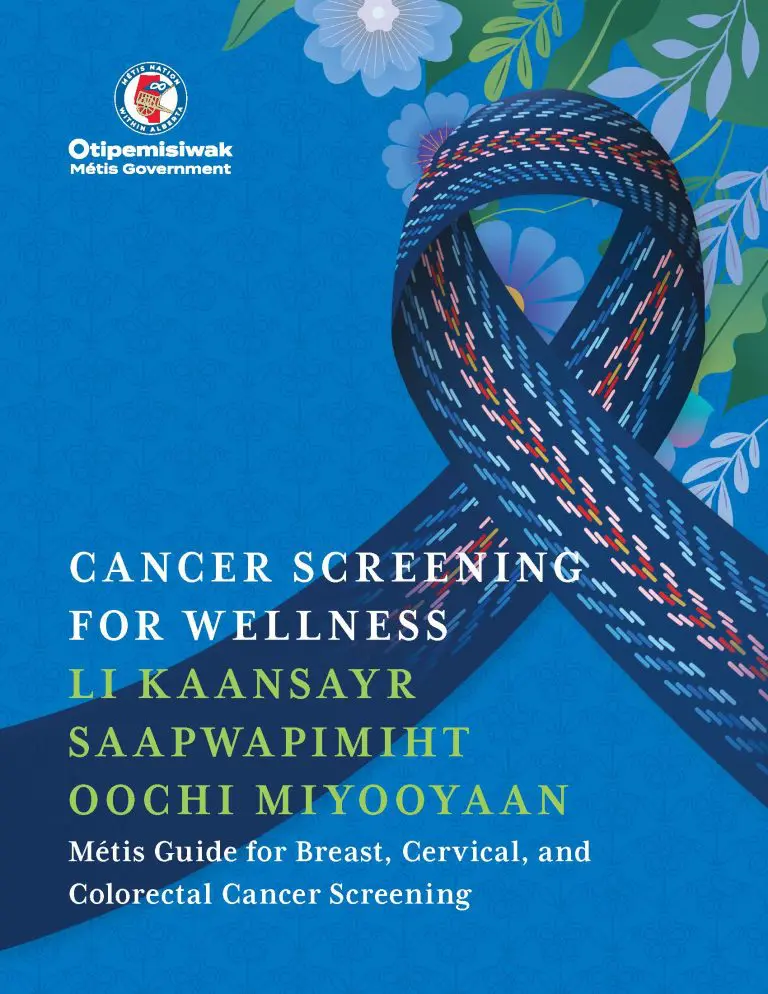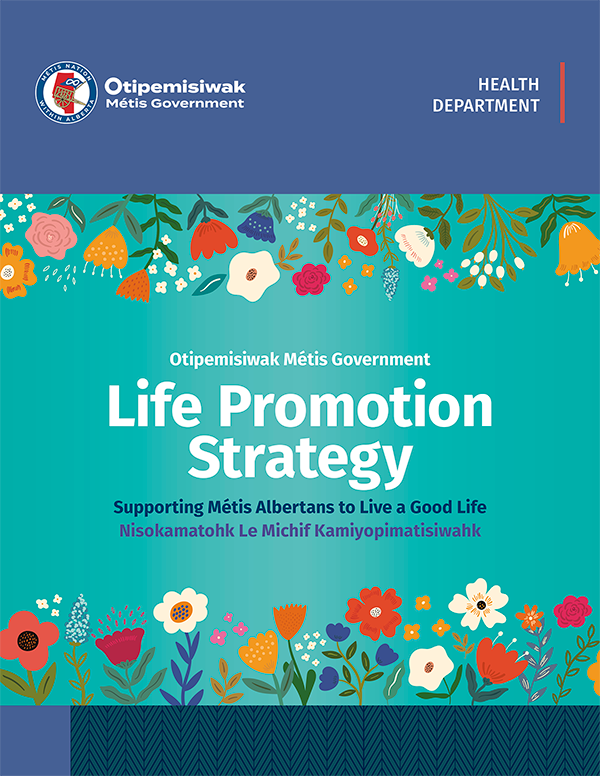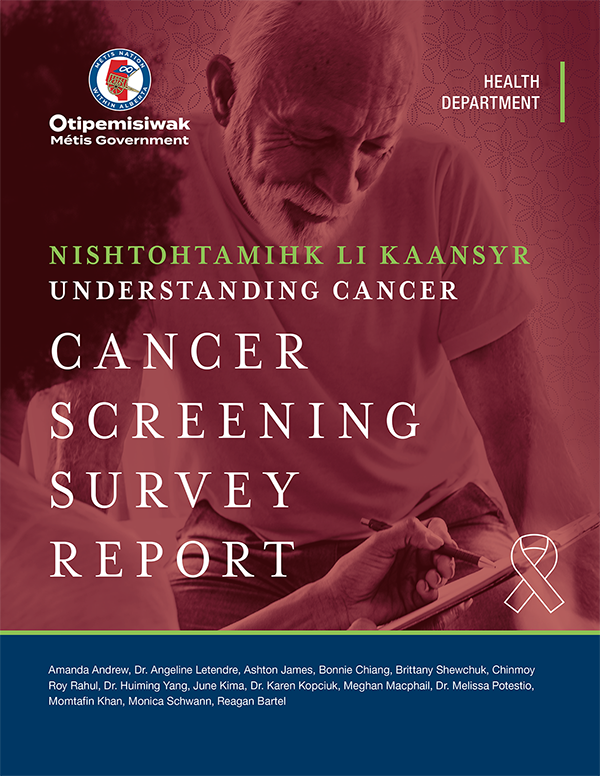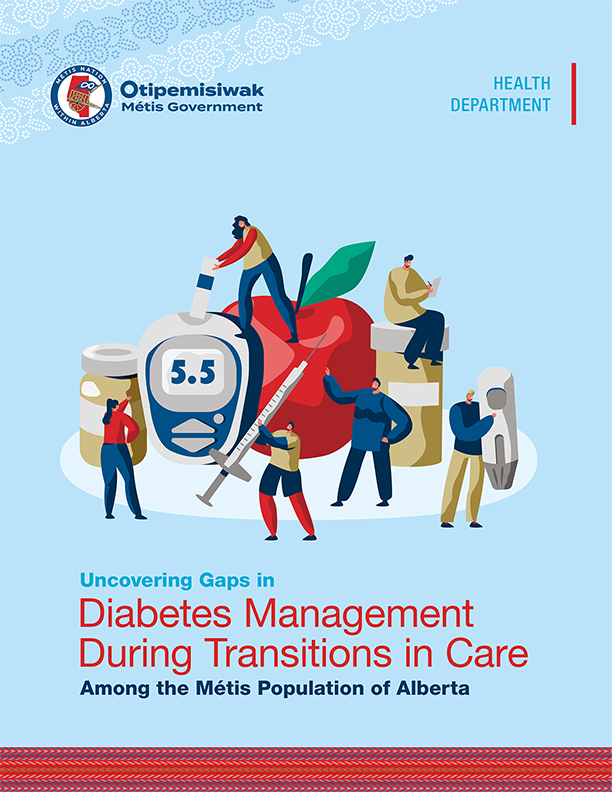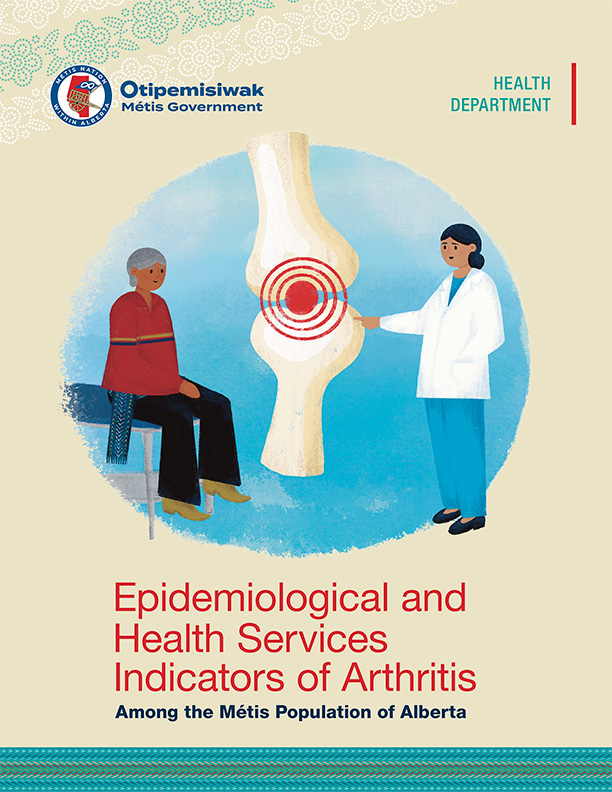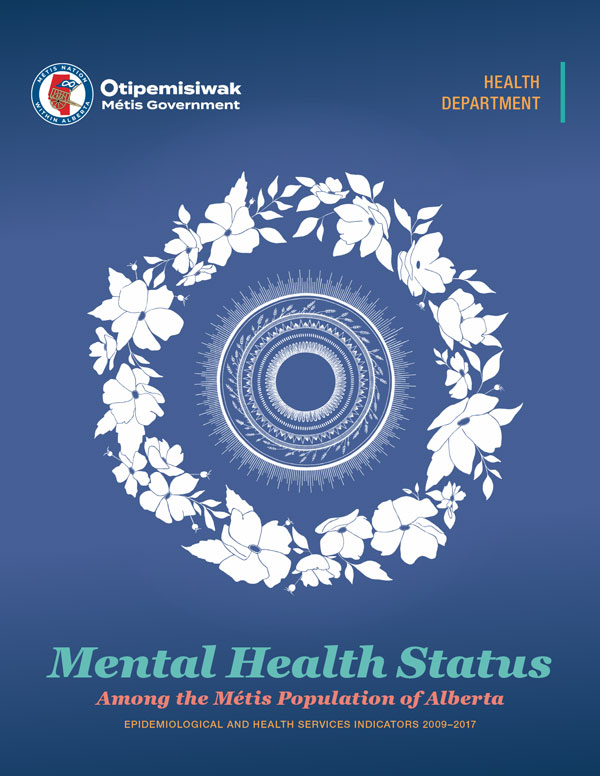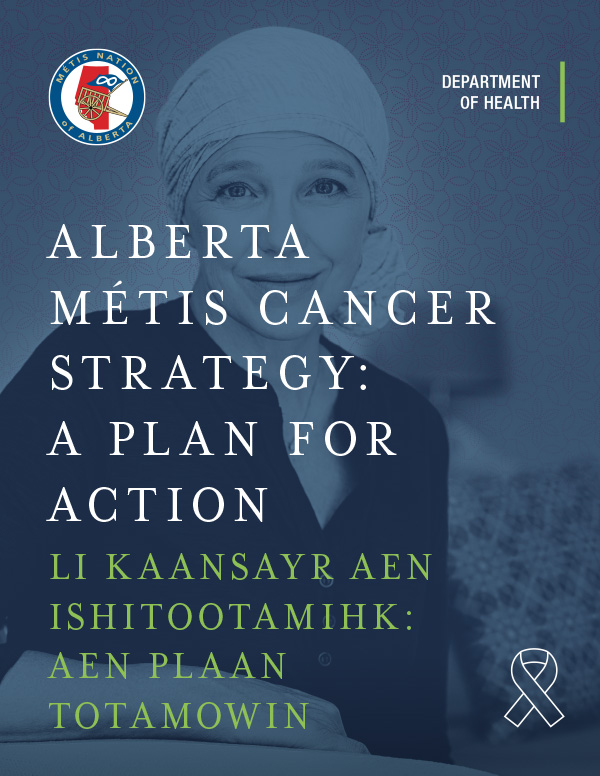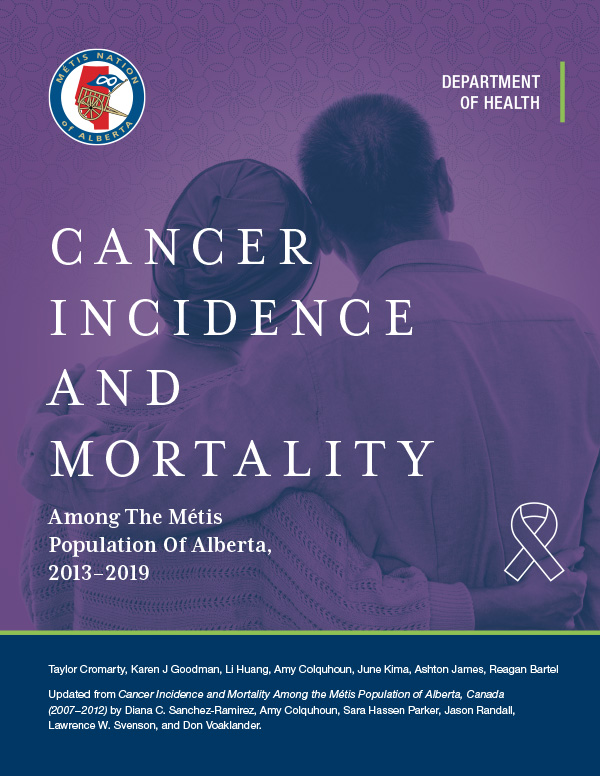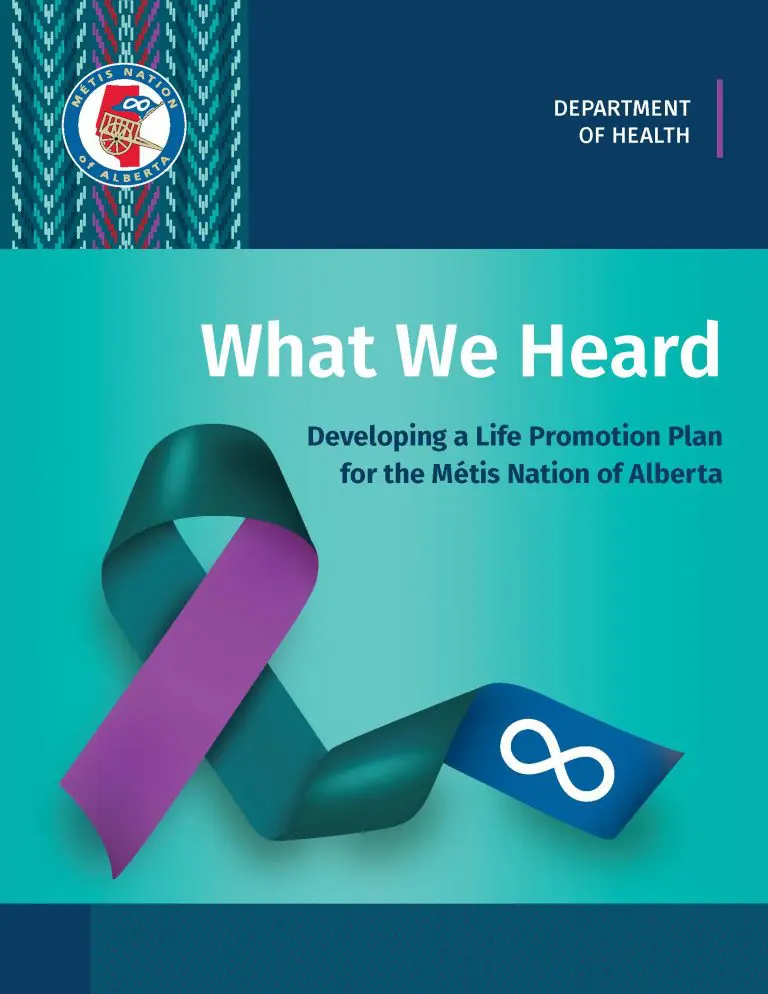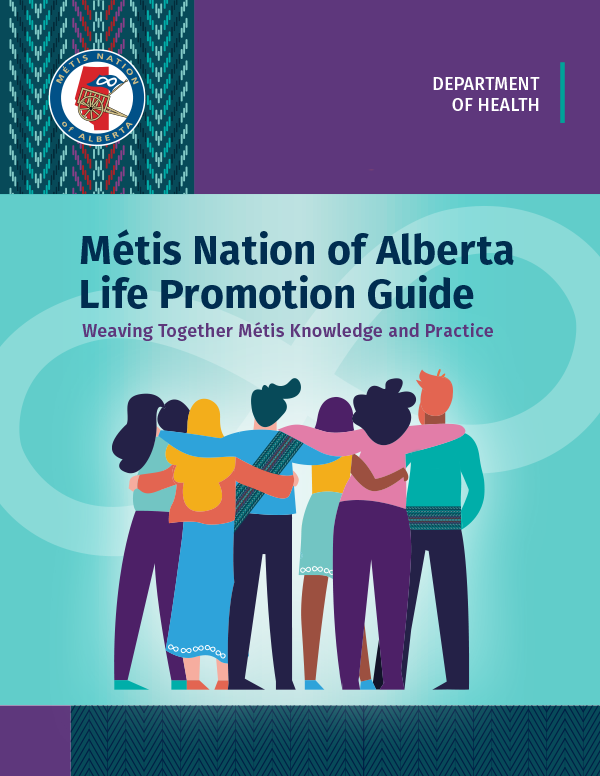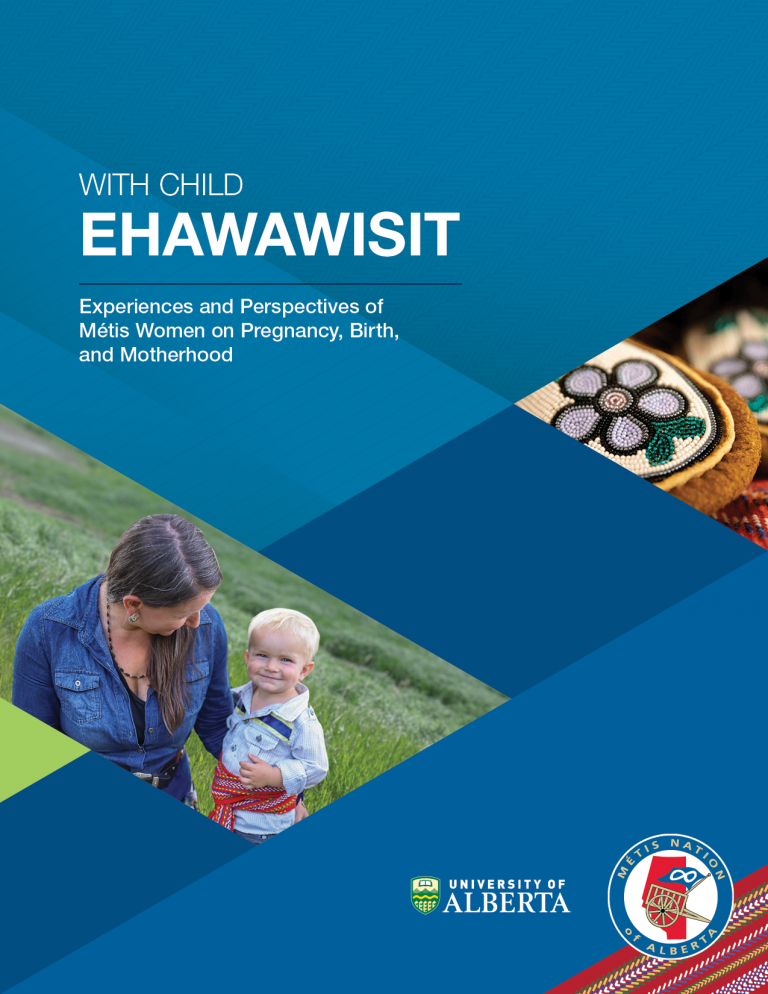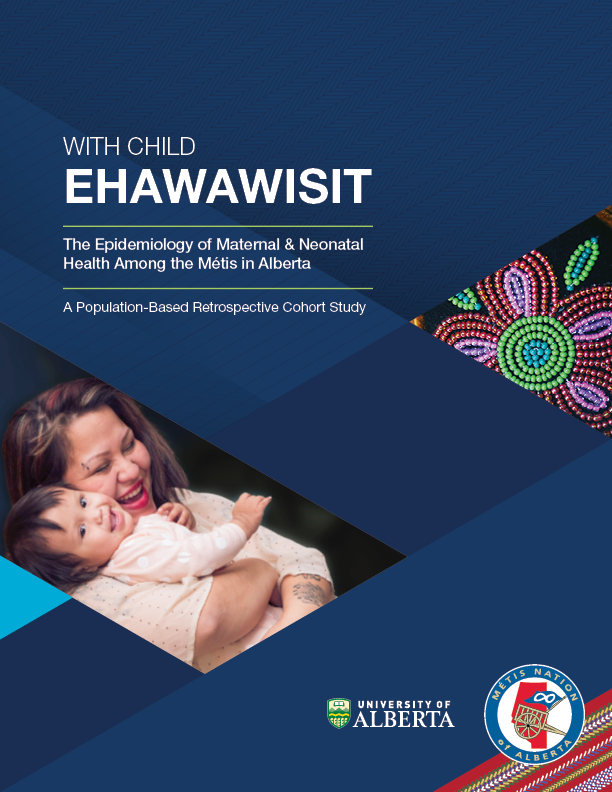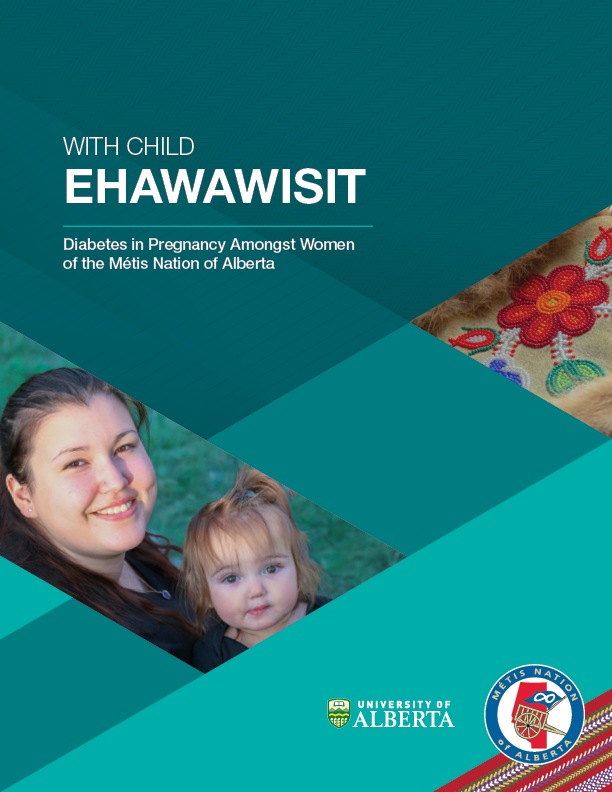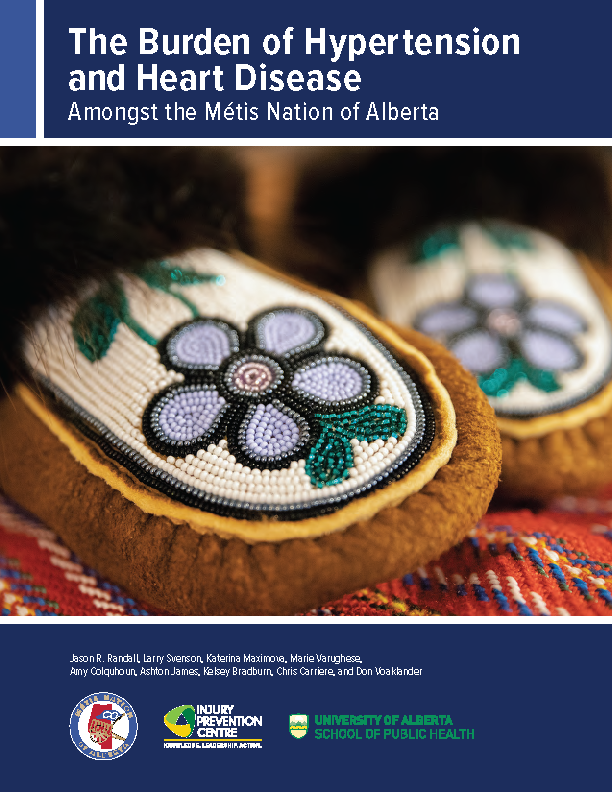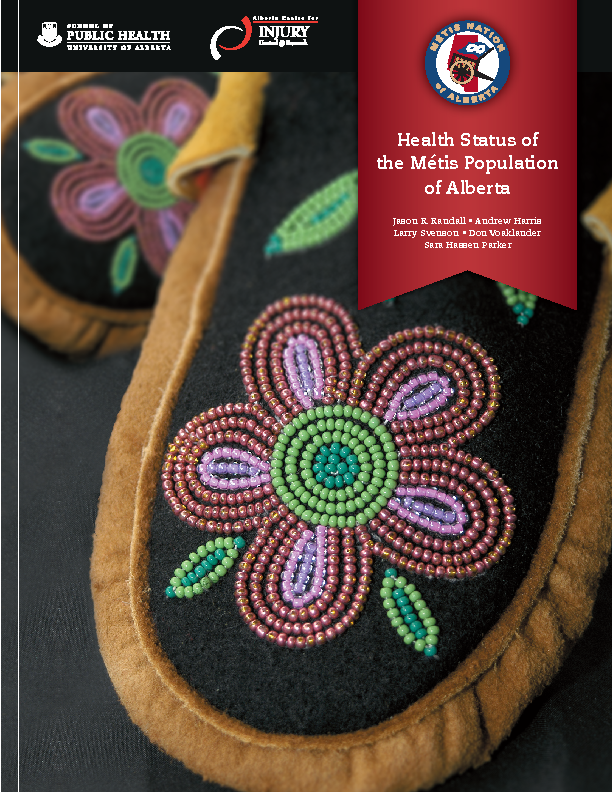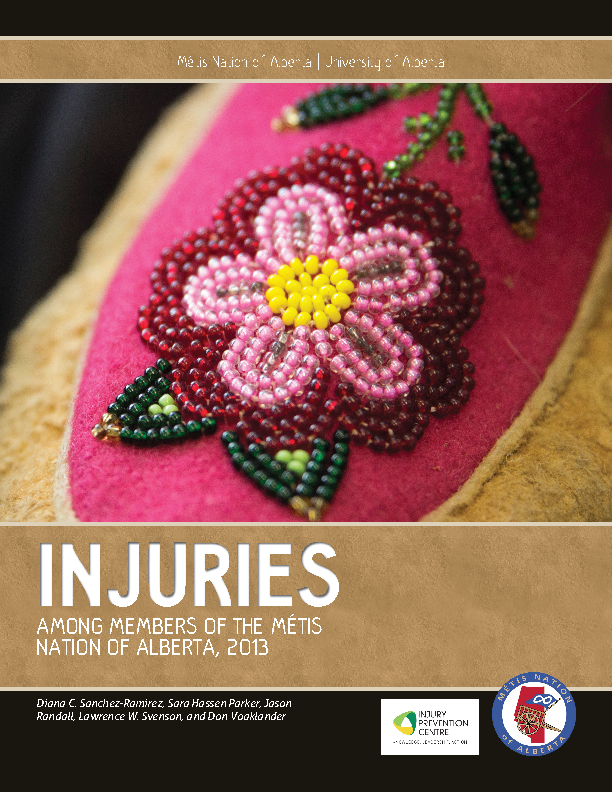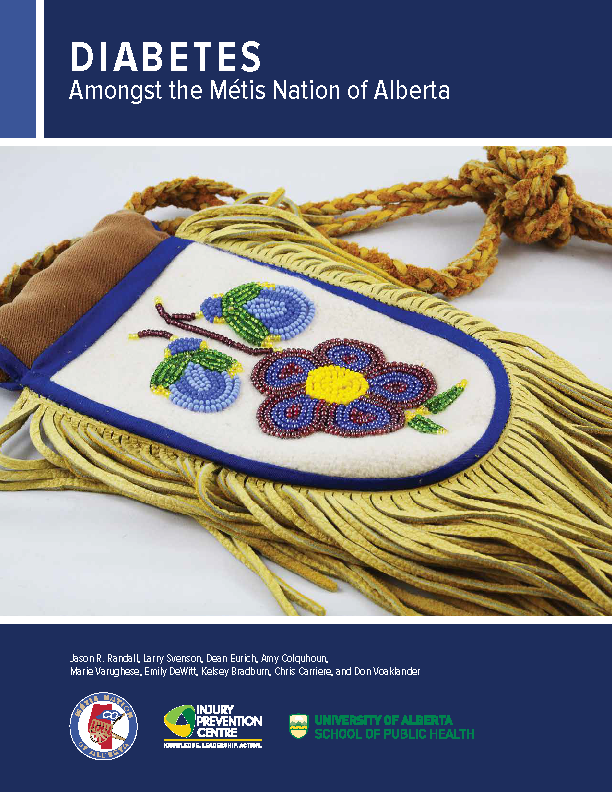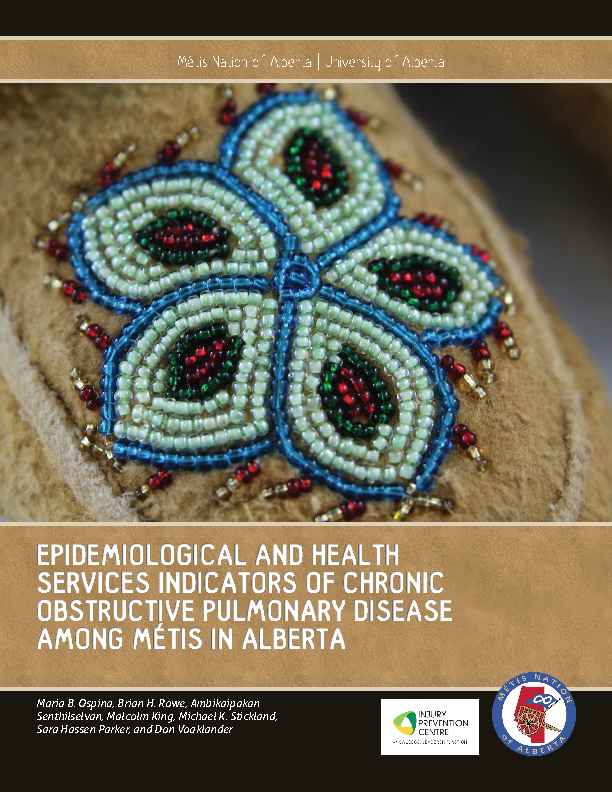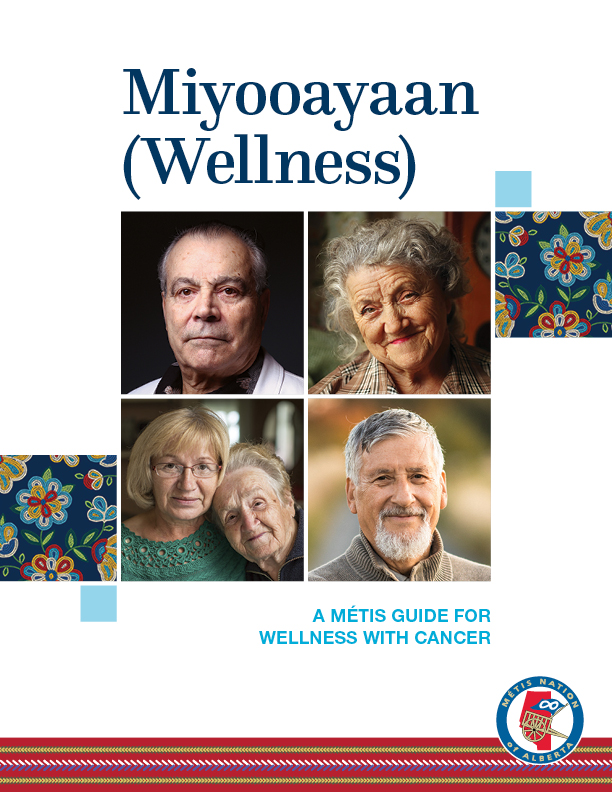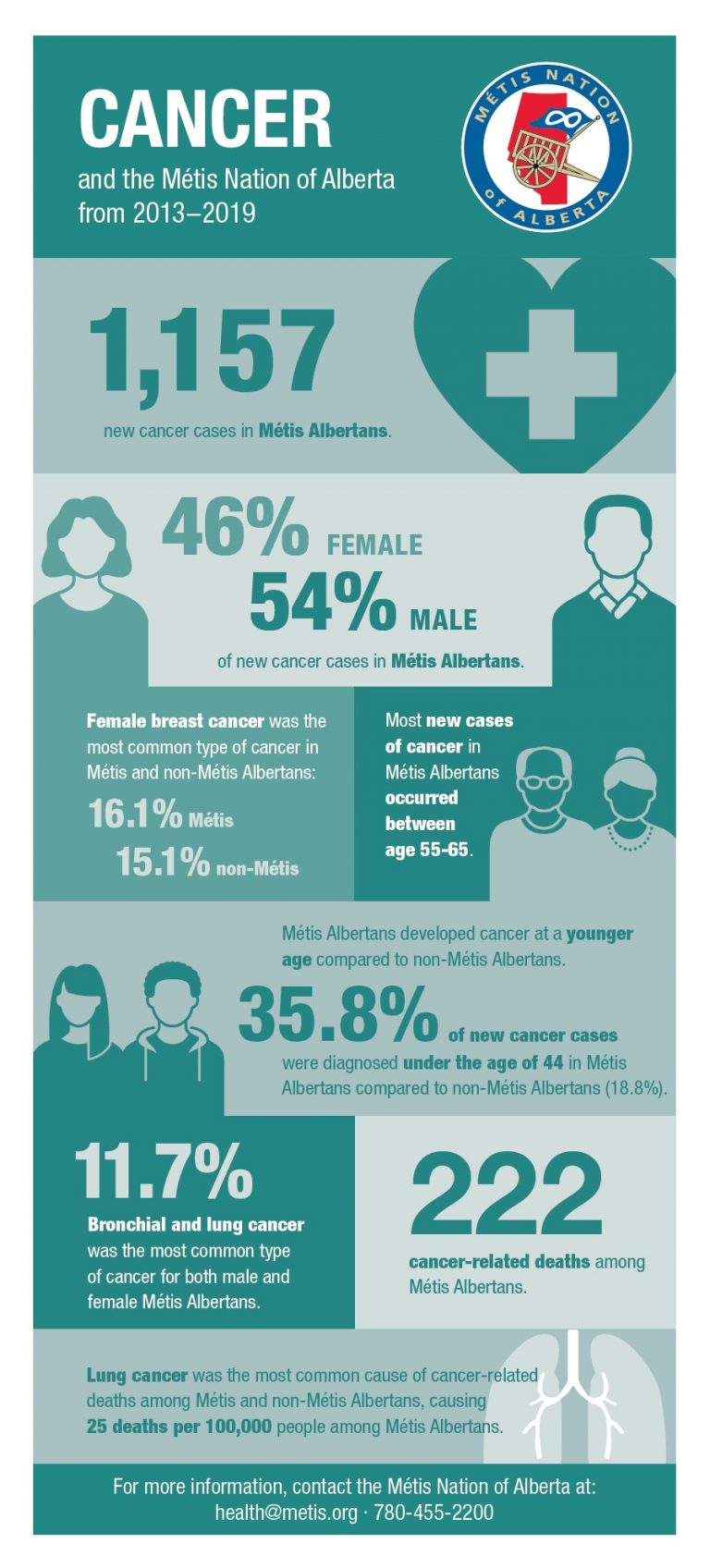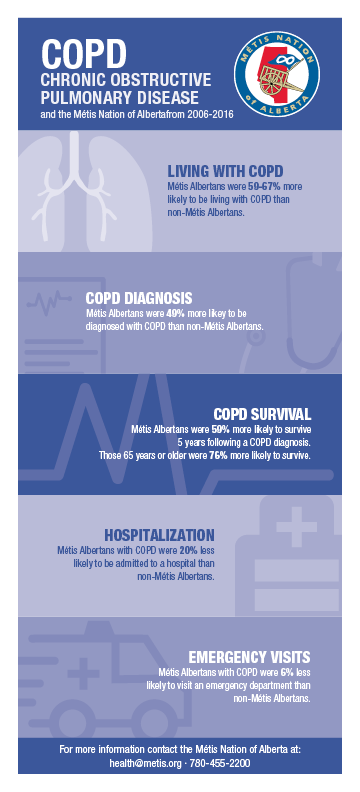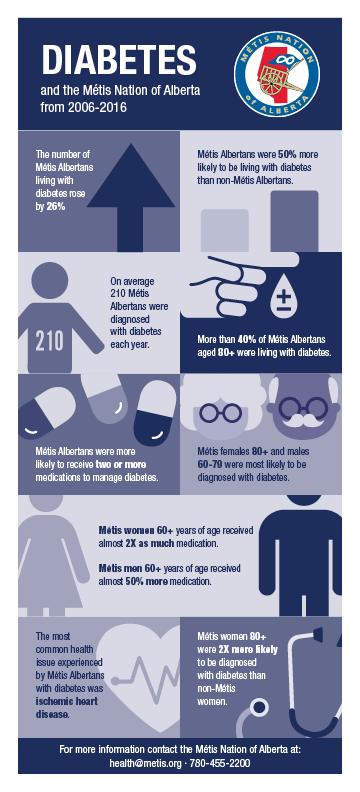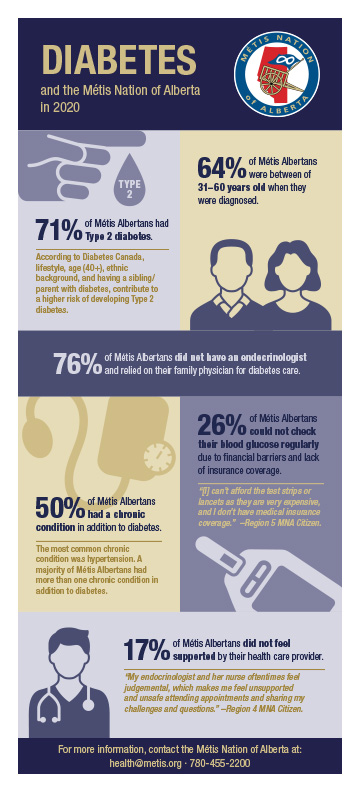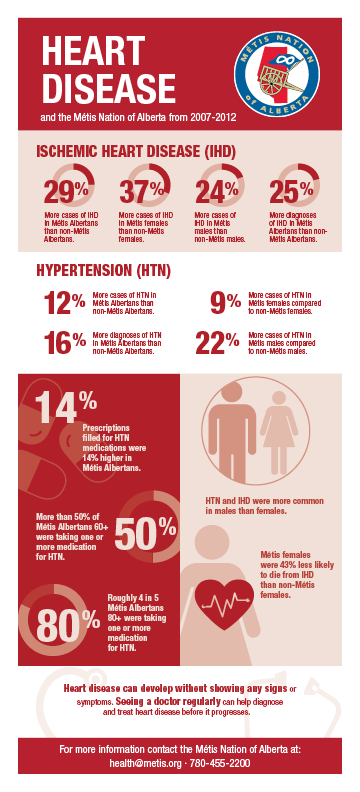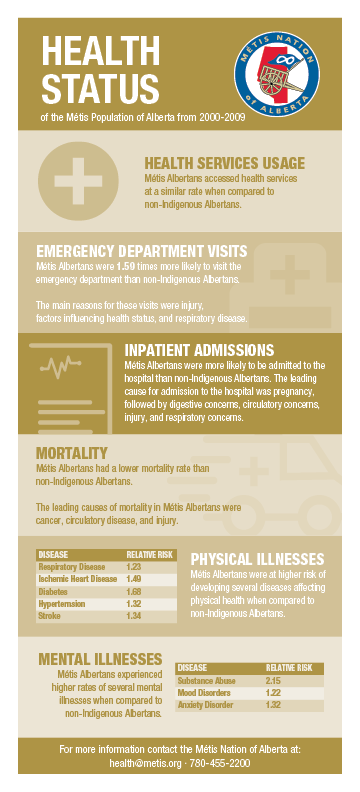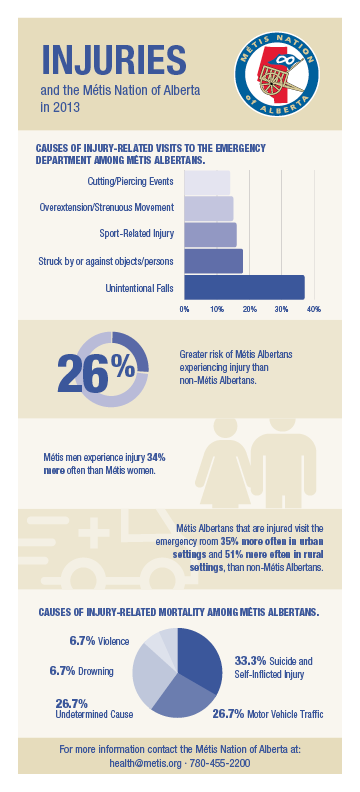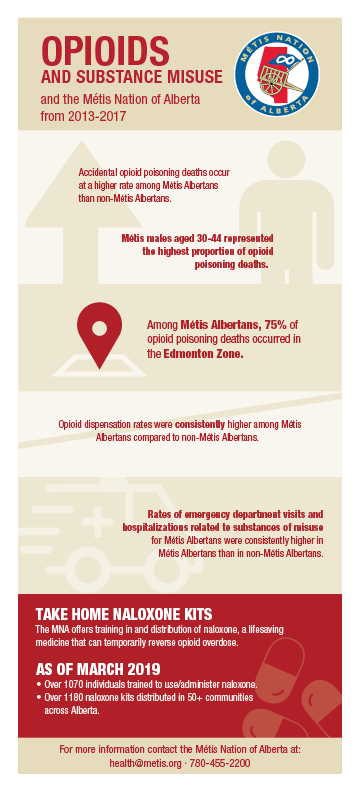The Health Department collaborates with partners at the provincial and federal levels on health research that advances the health and wellness priorities of Métis people in Alberta. Our work moves towards a vision of health in which all Métis Albertans are happy and healthy, grounded in their cultures and languages, and thriving as individuals and as members of their families and communities. To facilitate this work, the Health Department prioritizes building and fostering relationships with community, system, and academic partners. This includes opportunities for meaningful dialogue, open and respectful communication, and reciprocal relationships in alignment with the Principles of Ethical Métis Research.
In 2010, we signed an Information Sharing Agreement with Alberta Health to facilitate collecting de-identified (anonymous) health data of Métis Albertans to get a deeper understanding of our Citizens’ health outcomes and overall well-being. This agreement is the foundation of our public health monitoring activities, mainly creating epidemiological (health research) reports. Public health monitoring helps us understand health trends in the Métis community over time, informing initiatives, policies, and improvements we can implement to support the health and wellness of Métis people in Alberta. It includes data collection, analysis, and interpretation of health-related data (i.e., surveys, vital statistics, administrative records, and disease registries), as well as reporting back to the community to share findings. In addition to public health monitoring, the Health Department collaborates with funding agencies and health research partners to pursue self-determined research, building on the findings from health surveillance and further exploring the priorities of Métis Albertans to better understand the gaps and needs our community experiences when seeking and accessing healthcare services. This is often accomplished through various engagement methods and approaches, such as community surveys, gatherings, interviews, consensus building, and children’s art projects. The findings from these engagements inform interventions that we can pursue through policy, programming and resource development to improve Métis health and well-being. All engagement activities are grounded in Métis’ ways of learning and knowing and guided by the Principles of Ethical Métis Research.
The Health Department continues to advocate for the health needs of Métis Albertans through Framework Agreements with the Government of Canada and the Government of Alberta and by providing strategic advice, guidance, and recommendations on health research initiatives, policies, programs, and services through federal and provincial health advisory committees, working groups and other established platforms geared toward advancing Métis health and research.
Current Research Projects
- Cancer Research
- Long-Term and Continuing Care Research
- Maternal and Child Health Research
- Emergency Care Research
Completed Research Projects
Health Research Reports
In collaboration with our government, system, and academic partners, we have developed several health reports to share research findings, report on the insights gained during community engagements, and highlight the health and wellness priorities of Métis Albertans.

